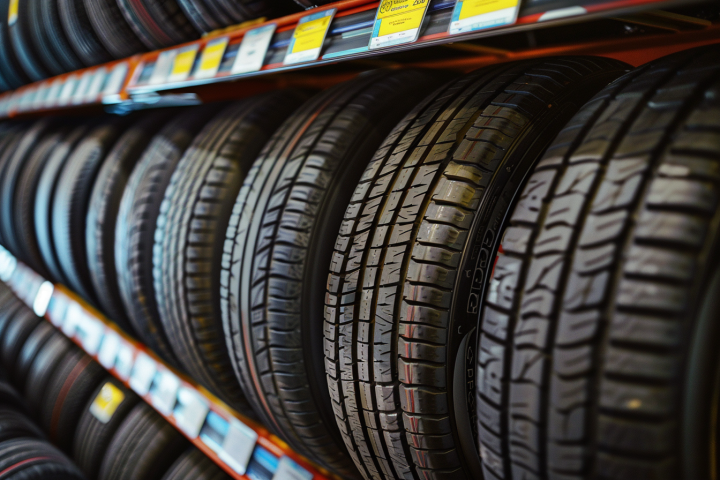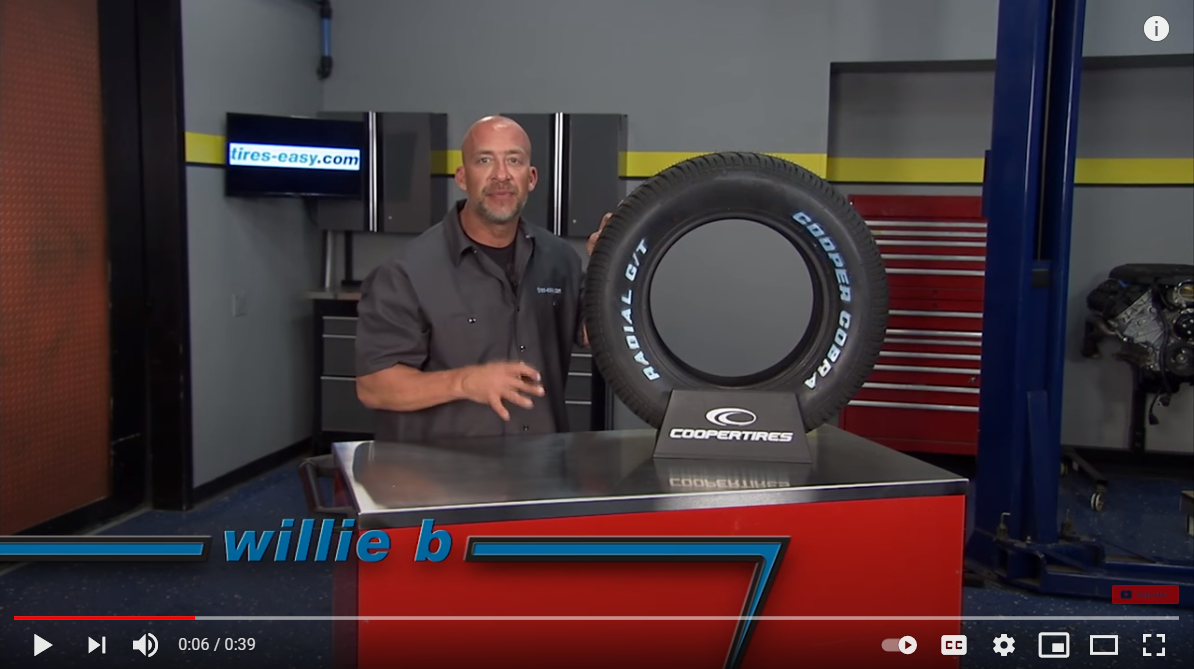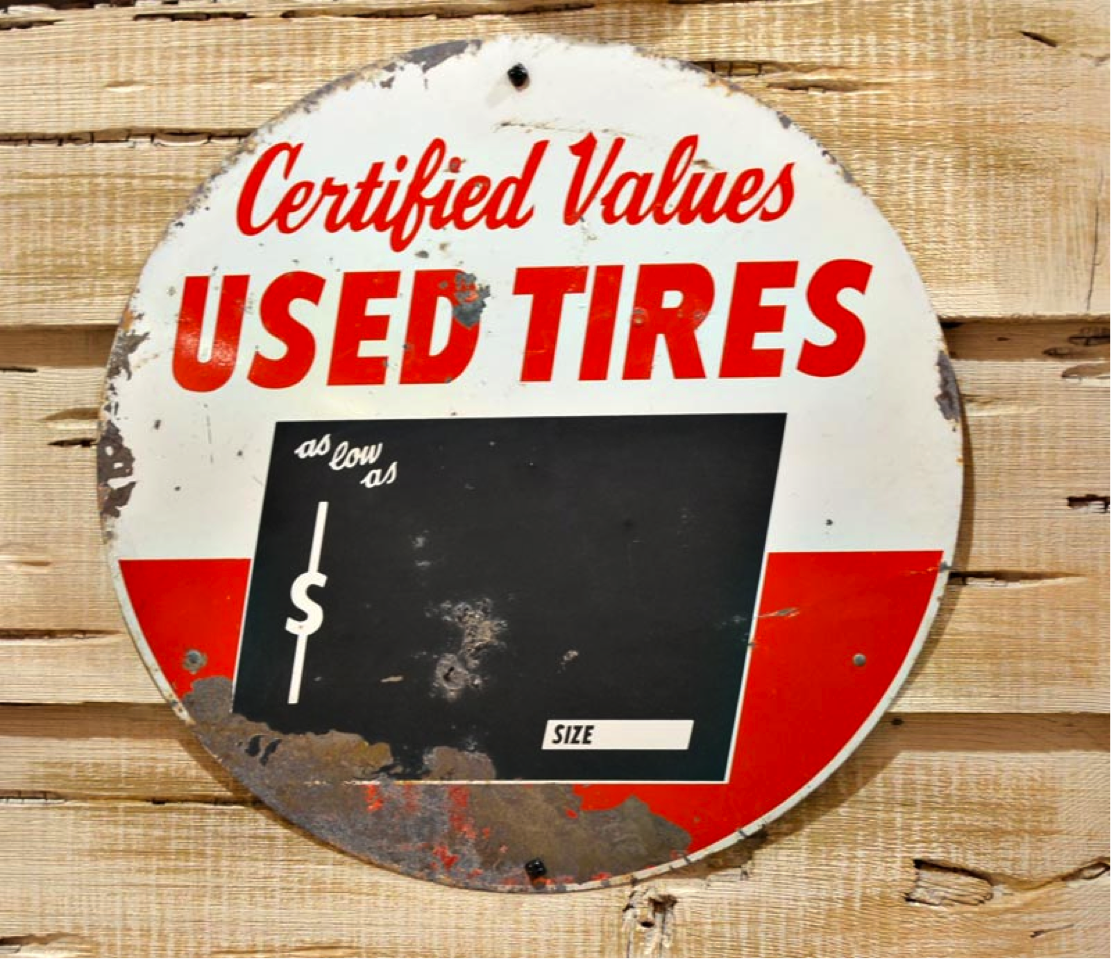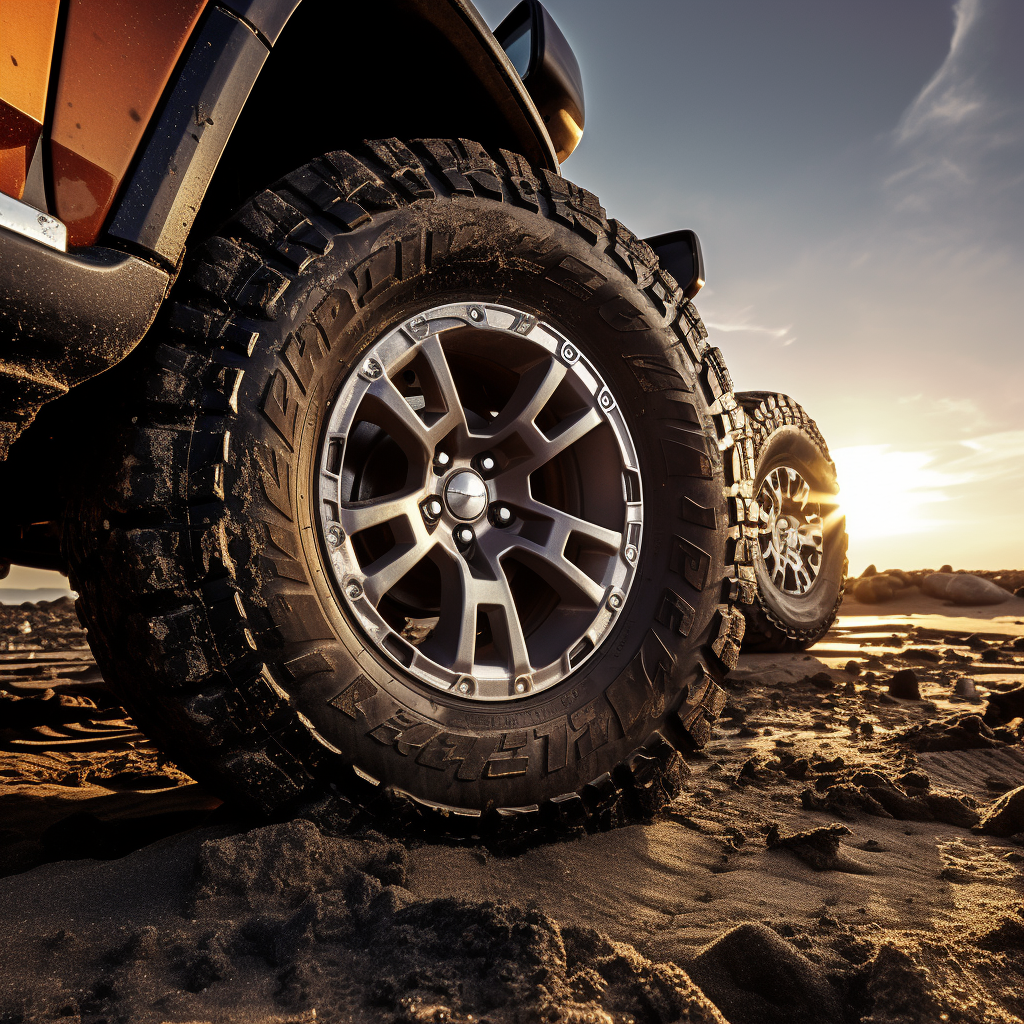Last Updated on April 21, 2024
Choosing the Right Light Truck Tires for Your Vehicle
A wide array of options are available on the market for light truck tires. Whether you use your truck for daily commuting, hauling heavy loads, or off-road adventures, choosing the right tires can greatly impact your vehicle’s performance, safety, and overall driving experience. In this comprehensive guide, we’ll walk you through everything you need about light truck tires, from understanding the different types to selecting the best ones for your needs.
You can’t be a cowboy without a truck; you can’t be a soccer mom without a minivan. Both are quintessential American vehicles, with their strengths and weaknesses. But which is better for your needs? What about splitting the difference and going with an SUV? The answer depends on your family. Let’s explore the pros and cons of each, from storage capacity to passenger seating, expected terrain to gas mileage, safety to eco-friendliness, and cost. What is the ultimate family vehicle?
Understanding Light Truck Tires
Light truck tires, often referred to as LT tires are designed for vehicles like pickup trucks, SUVs, and vans. These tires are built to handle the higher load-carrying capacities and varied driving conditions these vehicles encounter.

Types of Light Truck Tires
- All-Season Light Truck Tires: These tires are suitable for year-round use and perform well in various weather conditions. They are a popular choice for daily drivers and offer a good balance of comfort and performance.
- All-Terrain Light Truck Tires: If you need tires that can handle both on-road and off-road adventures, all-terrain tires are a great choice. They provide excellent traction on various surfaces and are perfect for outdoor enthusiasts.
- Mud-Terrain Light Truck Tires: For serious off-roaders, mud-terrain tires are designed to tackle the toughest terrain, including mud, rocks, and sand. They have aggressive tread patterns and reinforced sidewalls for added durability.
Choosing the Right Light Truck Tires
Selecting the perfect set of light truck tires involves considering several factors:
- Tire Size: The right tire size is crucial for optimal performance and safety. The recommended tire size is in your vehicle’s owner’s manual or the driver’s side door jamb.
- Load-Carrying Capacity: Make sure the tires you choose can handle the weight of your vehicle and any cargo you regularly transport. The load index rating on the tire sidewall provides this information.
- Tread Pattern: Different tread patterns offer varying levels of traction and performance. Consider your typical driving conditions when selecting a tread pattern.
- Speed Rating: The speed rating indicates the maximum speed at which the tire can safely operate. Match the speed rating to your vehicle’s capabilities.
- Seasonal Considerations: If you live in an area with harsh winters, you might want to invest in winter or snow-rated light truck tires for improved traction in cold conditions.
- Budget: While quality is essential, staying within your budget is also important. Fortunately, there are light truck tire options available at various price points.
Choosing the Right Pickup Truck for Your Farming Needs
The first question you must ask when considering a truck is whether you will realistically be hauling enough equipment, hay, tools, or anything heavy or large to justify needing a truck bed. If you are doing light hauling or what you need to transport is small, you may want to opt for a light truck or SUV (see below). But if you have a trailer for livestock or will regularly be transporting things that won’t fit in a closed trunk, this section is for you.
The pickup truck is the poster image of the all-American workhorse for a reason. A larger crew cab allows for transporting family while still giving you the utility of working the farm. Because of this, trucks offer far more options than minivans if all of the above applies to you.
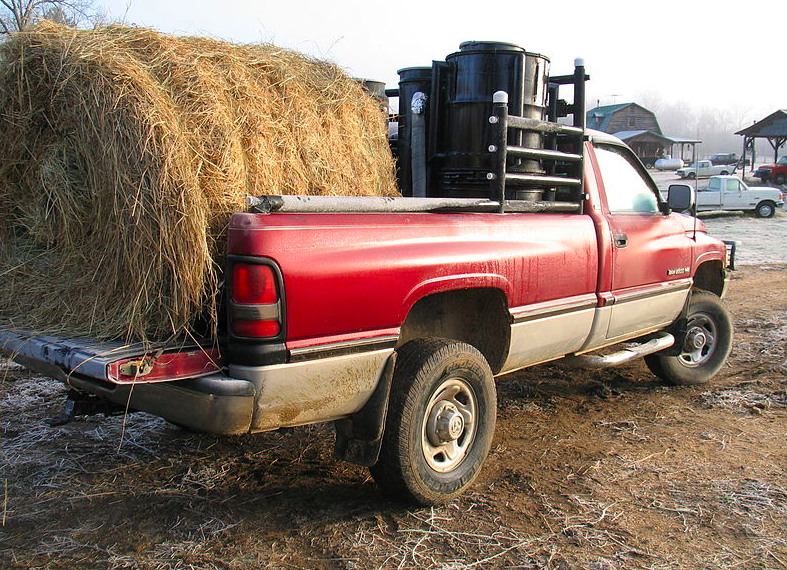
Your options are vast, from four-door cabs with space for four or five adults to two-door compact trucks. There’s the “half-ton” 1500 series, the “three-quarter-ton” 2500 series, and the 3500 series, the heaviest-duty truck for hauling large trailers. With an extended bed, you get more space for hauling, but you’re likely only to fit two or three adults in the cab — the opposite of a crew cab.
You can sacrifice cab space for storage space, letting you haul plant life, manure, furniture, and the kitchen sink. With a liner, cleaning the bed is easy, making muddy, dirty sports uniforms easy to transport without mucking up the cab. Some models, however, have both an extended bed and crew cab, which will increase the vehicle’s price.
Navigating the Terrain of Pickup Trucks: Power, Performance, and Fuel Efficiency
Trucks are perfect for off-roading in your downtime or tackling the hills of your farm acreage. Equipped with Cooper Discoverer AT3 tires, a car ensures that your farm’s terrain won’t slow you down. The all-American family car can roll around on an all-American tire brand in either a truck or a light truck. The right tire can also increase your mpg, improving the overall performance of your vehicle.
The problem, however, is that there are many options to consider. Fuel economy is better with a lighter, smaller truck, but that means less power to tow or transport items. A heavy truck with a heavy trailer means worse fuel economy. There’s also the diesel option, which is loud but powerful. But if towing between 12,000 and 30,000 pounds is a regular concern, the hit to the gas economy may be worth it. Add in rear-axle ratios, which also affect towing vs. fuel economy, and the choices can be overwhelming.

Trucks are safe to drive with front and side airbags, accident avoidance technology, stability control, and trailer sway control. Blind-spot warning systems, backup cameras, and lane drift warning systems are becoming more prevalent, which address most of the major concerns for truck safety.
Where pickup trucks don’t particularly excel is eco-friendliness. The tech isn’t quite there to provide power on just electricity, though Elon Musk has promised a pickup by 2019, with a semi-truck by the end of 2017. Even with EcoBoost, trucks are still outclassed in eco-friendliness by smaller vehicles.
Prices vary wildly, like the difference from a light truck to a heavy-duty one. Light, compact trucks can be some of the cheapest cars available, while heavy-duty trucks can cost $30,000 to $50,000. Adding a good set of tires to a vehicle is worth the investment, adding not only performance but improving fuel economy. Choose tires based on whether you are on the highway more or using the car to get around your property.
If the equipment you are hauling is for sports, and you have half of the pee-wee football team to take practice, a truck will not be the best option.
Maintenance and Care
Proper maintenance of your light truck tires ensures their longevity and performance. Here are some tips:
- Regularly Check Tire Pressure: Maintain the recommended tire pressure to optimize fuel efficiency, handling, and tread life.
- Rotate Your Tires: Regularly rotating your tires promotes even tread wear, extending their lifespan.
- Alignment and Balancing: Ensure your vehicle’s wheels are properly aligned and balanced to prevent uneven wear.
- Inspect for Damage: Inspect your tires for cuts, punctures, or bulges that may require repair or replacement.
Why Choose Tire Easy for Your Light Truck Tires
At Tire Easy, we offer a wide selection of high-quality light truck tires from reputable brands. Our user-friendly website makes it easy to find the right tires for your vehicle, and our competitive prices ensure you get the best value. Plus, our customer support team is ready to assist you every step of the way.
Conclusion
Investing in the right light truck tires can significantly enhance your driving experience, regardless of your vehicle’s intended use. Whether you prioritize all-season versatility, off-road capability, or extreme durability, you have a perfect set of light truck tires. Explore our extensive range of light truck tires at Tire Easy and take the first step toward optimizing your truck’s performance and safety.
Light truck tires open up a world of performance and versatility for your vehicle. Whether using your truck for daily commuting, off-roading adventures, or heavy-duty hauling, the right tires can make all the difference. With options designed for various terrains and weather conditions, you can enhance your truck’s capabilities and ensure a smooth and safe ride.
Quality light truck tires invest in your vehicle’s overall performance and longevity. So, don’t hesitate to explore the wide range of light truck tire options and confidently experience the road. Upgrade your tires today and enjoy the journey ahead!
Equip your truck with top-quality light truck tires
Ready to equip your vehicle with top-quality light truck tires?
Please browse our selection now and enjoy a smoother, safer ride.
Choose Tire Easy for all your tire needs and experience the difference.
Your journey starts with the right tires, and we’re here to help you every mile of the way.
FAQs
What are light truck tires for?
Light truck tires are designed for various types of trucks, SUVs, and vans. They suit daily commuting, off-roading, towing, and carrying heavy loads. These tires offer durability, performance, and versatility for various applications.
Are light truck tires better?
Light truck tires are not necessarily “better” than other types of tires. They are specifically designed to meet the demands of trucks and SUVs, offering features like enhanced load-carrying capacity, durability, and traction. Whether they are better depends on your vehicle’s needs and intended usage.
How are light truck tires different from car tires?
Light truck tires differ from car tires in several ways. They typically have a sturdier construction to support heavier loads, reinforced sidewalls for added durability, and tread patterns optimized for various terrains. Car tires, on the other hand, prioritize a smooth and comfortable ride.
How important are tires on a truck?
Tires are crucial to a truck’s overall performance, safety, and handling. They are the vehicle’s point of contact with the road, affecting traction, braking, stability, and comfort. Choosing the right tires for your truck is essential for a safe and efficient driving experience.




